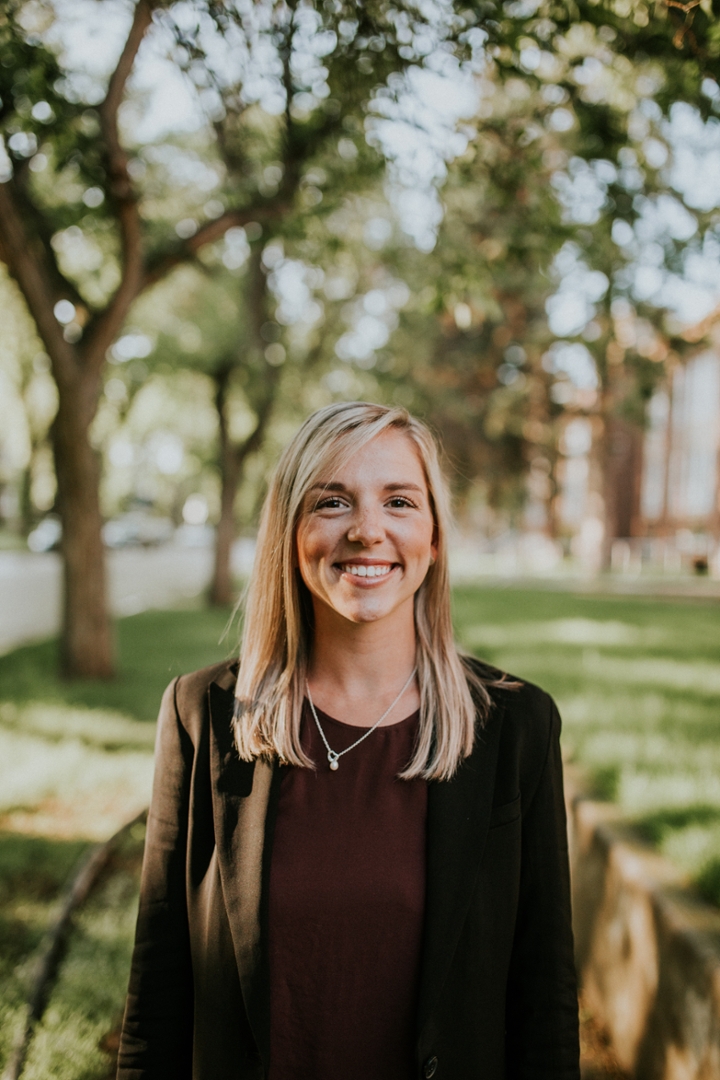
How Writing an Essay Deepened My Interest in Anesthesiology
"It is without question in anesthesia that the adverse effects of obesity have complicated the work of the profession and new strategies can be undertaken to deal with the effect of these."
By Jenelle ClarkMy name is Jenelle Clark and I am fourth-year medical student at the University of Saskatchewan. I began my clerkship in August 2018 with an open mind about what area (or specialty) of medicine I would end up in.
As time went on through clerkship, an area of interest for me became anesthesiology and as a result, I sought out opportunities to further pursue my interests by contacting faculty and staff within the department. This is how I was told about the Canadian Anesthesiologists’ Society (CAS) Essay Contest.
During this time, I learned that there was a Saskatchewan Division open to all medical students at USask and the top-three would be submitted to the national contest. I read up on all the available topics but nothing stood-out to me.
Since my undergraduate degree in kinesiology I have been passionate about pediatric development and health. This further translated during medical school when I was a selective with a pediatric surgeon. We had a great discussion about how surgeons were now performing adult surgeries on children due to the obesity epidemic in Canada.
This had me begin to wonder how obesity was affecting anesthesiologists practice as well. Because of this, I went out on a limb and proposed an off-list topic of “pediatric obesity” as my essay topic.
I wrote an essay titled, “The Changing Role of the Anesthesiologist in Medical Care of Obese Children” and submitted it to the contest. I was fortunate enough to win the first-place prize in the Saskatchewan division for this piece in March of 2019.
Here are a few highlights of my essay:
Standard airway assessment in an obese child should include mouth opening, dentition, neck extension, shoulder fat deposition, and an obstructive sleep apnea (OSA) screen, in order to anticipate difficult tracheal intubation and mask ventilation (4). OSA is under-recognized and undiagnosed in adults and the same holds true amongst obese children. It was found in one meta-analysis that obese pediatric patients were being identified as ASA 1s. Obesity is an independent risk factor for anesthesia and these patients were either miss-labelled as obese and earned their ASA 1 or they were obese and not correctly identified as an ASA 2.
Pharmacology is also largely correlated to weight, especially in children where medications are dosed based on weight.
Obesity is known to affect the pharmacokinetic property of almost all anesthetic agents (3). The lack of available data on the pharmacokinetic and pharmacodynamic properties in anesthetic agents in obese pediatric patients has led to “off-label” dosing of most agents (7). In one study it was found that overweight/obese children were more likely to receive common anesthetic medications outside of the recommended doses…with overweight children being nearly 3.5 times more likely to have received a medication over-dose and 70% less likely to be under-dosed than normal weight children. One new initiative aimed at preventing inappropriate medication doses is through calculating optimal drug doses for induction and maintenance of anesthesia with Total Body Weight (TBW), Ideal Body Weight (IBW), and Lean Body Weight (LBW).
A key focus of the essay with relation to how obese children affect anesthesia was peripheral IV access.
Obese pediatric patients are more likely to have multiple attempts at a peripheral IV access-point compared to lean counterparts. A few new practices that have been implemented by anesthesiologists to mitigate difficult venipuncture include: (1) utilizing topical amethocaine to vasodilate the veins, (2) attempting access on the volar surface of the hand, and (3) transillumination of the vein to facilitate cannula insertion (3, 4, 9).
Later, in June of 2019, I attended the CAS National Meeting in Calgary and had the opportunity to listen to the presentations of the national essay contestant winners. It was very inspiring to hear from medical students across the country and their interests for the future in the field of anesthesia. I think this was a great opportunity for myself as a third-year medical student as it allowed me to perform an informal literature review around a topic I really care about.
I am very grateful for the connections I was able to make through the essay contest as they were very beneficial for me as a medical student. I came to realize that it is always important to seek out opportunities to explore areas that interest you while you are in medical school because you never know what might change your mind or provide new inspiration.
